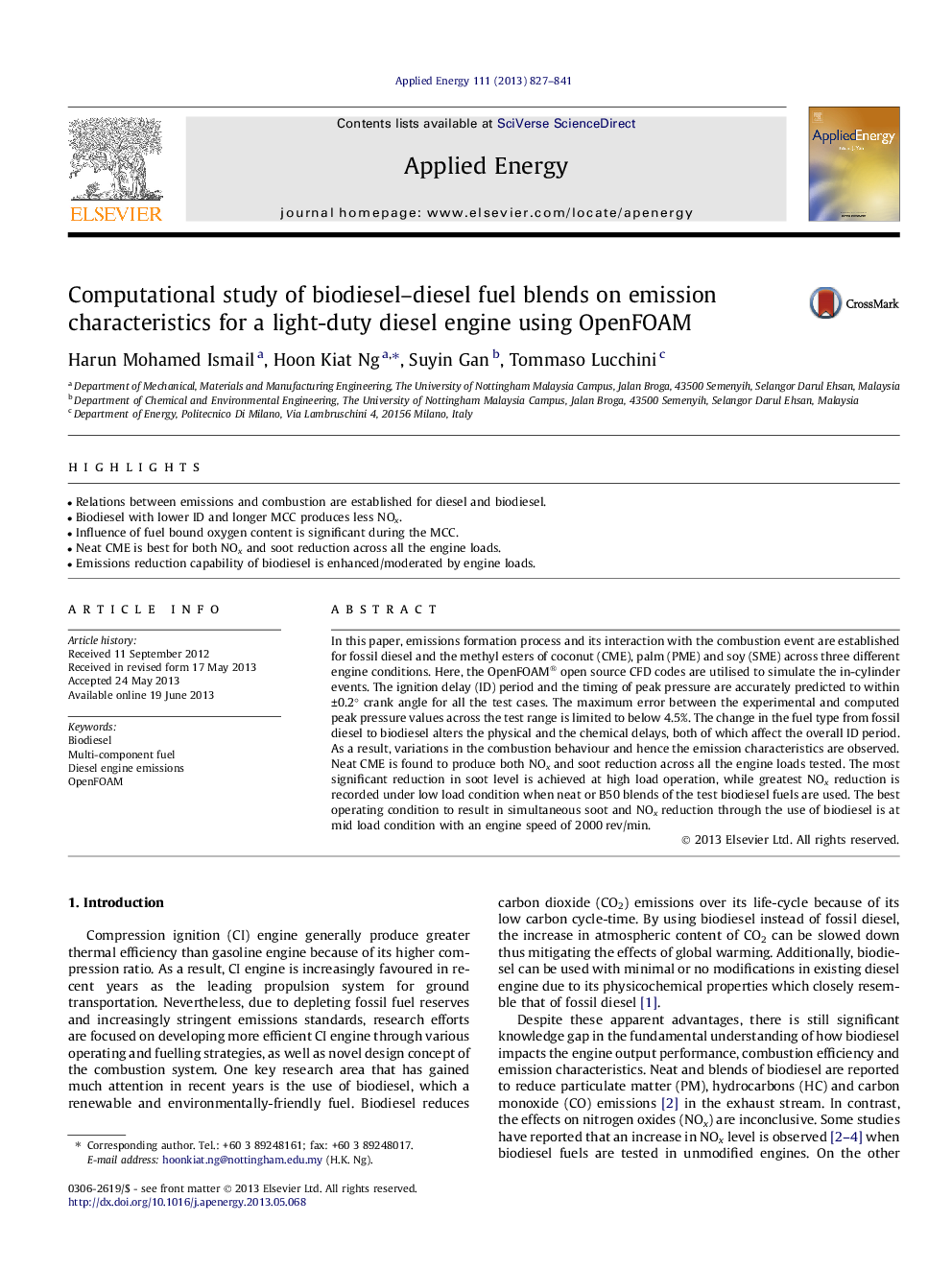| Article ID | Journal | Published Year | Pages | File Type |
|---|---|---|---|---|
| 6692550 | Applied Energy | 2013 | 15 Pages |
Abstract
In this paper, emissions formation process and its interaction with the combustion event are established for fossil diesel and the methyl esters of coconut (CME), palm (PME) and soy (SME) across three different engine conditions. Here, the OpenFOAM® open source CFD codes are utilised to simulate the in-cylinder events. The ignition delay (ID) period and the timing of peak pressure are accurately predicted to within ±0.2° crank angle for all the test cases. The maximum error between the experimental and computed peak pressure values across the test range is limited to below 4.5%. The change in the fuel type from fossil diesel to biodiesel alters the physical and the chemical delays, both of which affect the overall ID period. As a result, variations in the combustion behaviour and hence the emission characteristics are observed. Neat CME is found to produce both NOx and soot reduction across all the engine loads tested. The most significant reduction in soot level is achieved at high load operation, while greatest NOx reduction is recorded under low load condition when neat or B50 blends of the test biodiesel fuels are used. The best operating condition to result in simultaneous soot and NOx reduction through the use of biodiesel is at mid load condition with an engine speed of 2000 rev/min.
Related Topics
Physical Sciences and Engineering
Energy
Energy Engineering and Power Technology
Authors
Harun Mohamed Ismail, Hoon Kiat Ng, Suyin Gan, Tommaso Lucchini,
